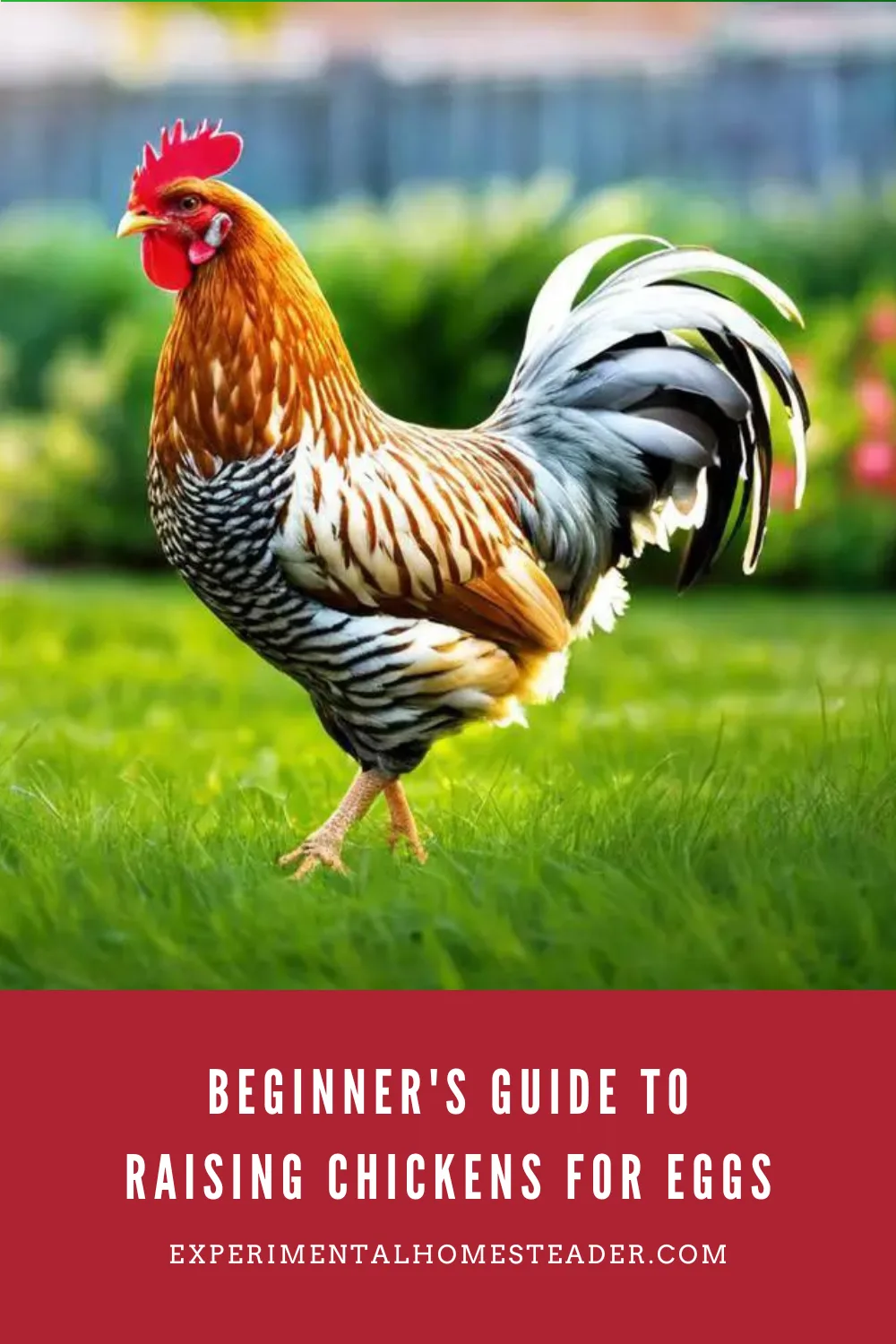Our guide begins by delving into the diverse array of chicken breeds, each with its unique charm and egg-laying prowess.
From the iconic Rhode Island Red to the reliable Plymouth Rock and the prolific Leghorn, we'll explore which breeds align best with your egg production goals.
It's not just about looks; it's about finding the perfect match for your homestead.
Constructing a safe and comfortable sanctuary for your flock is paramount.
We'll cover everything from designing the ideal chicken coop, ensuring ample space and robust predator defenses, to create a haven where your chickens can thrive and flourish.
Understanding the dietary needs of your chickens is key to ensuring their optimal health and egg yield.
We'll provide insights into crafting a balanced, nutrient-rich diet tailored to their requirements, laying the foundation for healthy, happy hens and abundant eggs.
Equipped with the knowledge to detect early signs of illness and stress, you'll be empowered to nurture a vibrant and resilient flock.
Together, let's embark on this rewarding journey, transforming your passion for poultry into a haven of fresh, home-laid eggs on your homestead.
Table of Contents
ToggleTop Chicken Breeds for Bountiful Backyard Egg Production
Let's dive into the world of backyard chickens and discover the top breeds renowned for their egg-laying prowess.
Whether you're a seasoned homesteader or just starting your journey, there's something special about collecting fresh eggs from your own coop.
Raising backyard chickens checks off so many boxes at once!
It's a hands-on lesson for the kids, a chance for family bonding, and a practical skill that fills your breakfast table with fresh, nutritious eggs.
But before we dive into this feathered adventure, let's chat about the top chicken breeds renowned for their egg-laying abilities.
Because let's be real, who wouldn't want a bounty of fresh eggs to start their day off right?
So, why not grab a cup of coffee and let's delve into the world of homestead chickens together?
Here are some popular breeds if your goal is raising chickens for eggs:
Leghorn
- Delightful white egg layers
- Impressive annual egg production of 250-300 eggs per hen
- Hardy and adaptable to various climates, perfect for backyard coops
Rhode Island Red
- Excellent balance of egg production and adaptability
- Produces around 200-300 brown eggs per year per hen
- Friendly nature and hardiness make them a favorite among families
Easter Egger
- Unique colorful eggs in shades of blue, green, or pink
- Average egg production of around 200 eggs per year
- Exciting egg colors add joy to the egg-collecting experience
Sussex
- Sturdy and charming with varieties in colors
- Calm temperament suitable for family-friendly backyards
- Lays approximately 250 cream or light brown eggs per year
Plymouth Rock
- Sweet and docile with a distinctive black and white striped pattern
- Good egg layers with an annual output of about 200 eggs
- Ideal pick for families new to homesteading
Raising these chicken breeds for eggs brings not just the joy of plentiful egg production but also the satisfaction of connecting deeper with the rhythm of nature and teaching little ones the cycle of food production.
So, choose a breed, set up a cozy coop, and get ready to collect those tasty, homegrown eggs that will make morning breakfasts all the more special.
Remember, no matter the breed you pick, providing a loving home and proper care will lead to happy hens and a bounty of eggs.
Chicken Coop Essentials
Creating the perfect house for our feathered friends requires attention to detail to ensure they are happy, healthy, and productive in their egg-laying efforts.
Let's dive into what features are absolutely necessary in a chicken coop for those precious eggs to keep coming.
Ample Space
Space is key.
Your chickens need room to spread their wings, both inside the coop and in an outdoor run.
Plan for at least 2-3 square feet per chicken inside, and an additional 10 square feet outside.
Overcrowding can lead to stress and pecking, which isn't good for anyone involved.
Ventilation
Good airflow is crucial to keep humidity levels down and prevent respiratory issues.
However, it's also important to ensure the coop is draft-free, especially in colder months.
Think adjustable vents or windows to keep the air fresh during summer without letting in a cold breeze in the winter.
Some people insulate their chicken coop if they live in a cold climate to make sure their chickens are comfortable when the temperatures drop below freezing.
Cozy Nest Boxes
Nest boxes are like cozy bedrooms where the magic happens.
One box for every 3-4 hens is ideal.
They should be cozy and dark, lined with soft bedding to keep eggs from cracking and encourage hens to use them.
Adding some herbs chosen for chickens into the bedding in the nest box not only helps keep the coop smelling fresh, but also helps to calm the hens when they are in the nest box laying.
Comfortable Perches
Perches or roosts provide a natural comfort for chickens, simulating the safety of sleeping in trees.
Ensure there's enough space for all chickens to settle on at once, usually 8-10 inches per bird.
Place them higher than the nest boxes to discourage sleeping there.
Old wooden ladders that are in good shape with no splinters are ideal for this.
Balanced Diet
Laying hens need access to fresh water and a balanced feed rich in protein, calcium, and other minerals.
Consider a feeder that prevents spillage to avoid waste and attracting pests.
I personally prefer to feed my chickens Purina Organic Layer Pellets once they are old enough to start laying.
For younger chickens, I use the Purina Organic Starter Grower Mix.
I originally received several bags for free to try, but it made such a difference that I continue to purchase it from our local Tractor Supply.
Secure Coop
Protection from predators and rodents is essential.
A chicken coop with buried hardware cloth can deter diggers, while tight-fitting lids or doors keep out grabby critters.
Another option is to use metal grates on all the windows on the outside.
That way you can open them to let fresh air in and nothing can get in as long as the grates are properly secured.
I also tend to lock my chicken coop at night with a padlock because some critters can open doors.
Cleanliness
A clean coop is a happy coop and helps to ward off diseases and pests.
Ensure the coop is easy to clean with removable trays or an accessible layout so you can remove soiled bedding easily.
In addition to straw on the floor, I use dichotomous earth in the bottom of their nest boxes, on the floor of the coop and also sprinkle it on their food as needed as a natural dewormer.
Setting up a chicken coop with these features ensures our feathered friends will be living their best life, and in return, they’ll provide a bounty of fresh eggs.
Chicken Health and Nutrition
Ensuring the health and productivity of your backyard chickens is essential for homesteaders like us.
Let's break it down into some key tasks:
Regular Health Checks
Just like any other pet or family member, regular health checks are crucial for our feathered friends.
Gently pick up your chickens often, checking for signs of mites, lice, or respiratory issues.
Their eyes should be clear and bright, and their feathers should be full and glossy.
If anything seems off, don't hesitate to contact a veterinarian who specializes in poultry.
Proper Diet
A balanced diet is key to chicken health.
Alongside commercial layer feed, supplement with kitchen scraps and garden produce.
But be cautious with what you share; avoid toxic foods like chocolate, caffeine, avocados, and onions.
For a special treat, scatter mealworms or grains on the ground to encourage natural foraging behavior.
Emotional Wellbeing
The emotional wellbeing of our chickens is vital for their health and egg production.
Provide enriching activities like a dust bath area for natural dusting behaviors, and occasionally rearrange perches and swap out toys to keep things stimulating.
Deworming and Vaccination
Regular deworming and vaccination schedules are essential.
Typically only chicks are vaccinated and they come that way if you buy them from a hatchery.
I do not use commercial wormers on my flock as I choose to use dichotomous earth instead.
Consult with a vet to determine the right program for your flock, as different regions may face different health challenges.
Also, if you intend to show your chickens, it is good to know if there are any health related issues in your area.
Normally my vet makes a farm call once a year, in the spring, and glances over my chickens just to see how they look.
To date, the only issue I have had was coccidiosis when I first got into chickens and was buying from an individual who was hatching hundreds of chicks from various places at once.
Observation
Keep an eye on your chickens' behaviors and egg-laying patterns.
Any sudden changes could signal health issues that need attention.
If egg production drops unexpectedly, it might be time for a health check, however keep in mind that is normal for chickens to quit laying during the colder winter months.
By following these guidelines, your backyard chickens will live contented, healthy lives, and your morning omelets will be fresher and tastier than ever!
To learn even more about raising chickens, be sure to check out my podcast episode Getting Started With Chickens.
The Homesteader's Guide to Raising Chickens For Eggs
Embarking on the adventure of egg-raising offers much more than just the tangible rewards of fresh eggs; it brings the satisfaction of nurturing life and contributing to a sustainable cycle of food production.
By immersing ourselves in the responsibilities of selecting the right breeds, crafting a secure and adequate habitat, and ensuring a diet that promotes strong health, we become stewards of a natural process that has supported humans for centuries.
As homesteaders, we understand the importance of every aspect of chicken care:
- Selecting the Right Breeds: Choosing breeds known for their egg-laying abilities ensures a bountiful supply of fresh eggs for our families.
- Crafting a Secure Habitat: Building a coop that provides safety from predators and a comfortable environment for our feathered friends is essential for their well-being.
- Ensuring a Nutritious Diet: Providing a balanced diet rich in protein and essential nutrients not only promotes strong health but also enhances egg production.
As we continue to care for our chickens with dedication and knowledge, the fruits of our labor become evident in the form of healthy, contented birds and a regular supply of nutritious eggs.
Let this be not just a pursuit but a fulfilling connection to the simple yet profound rhythms of nature, where every egg is a testament to the care and understanding invested in these remarkable creatures.
Raising Chickens

The Ultimate Guide To Keeping Chickens At Home
Keeping chickens at home is enjoyable. Learn what you need to know to start raising free range chickens in your own backyard.
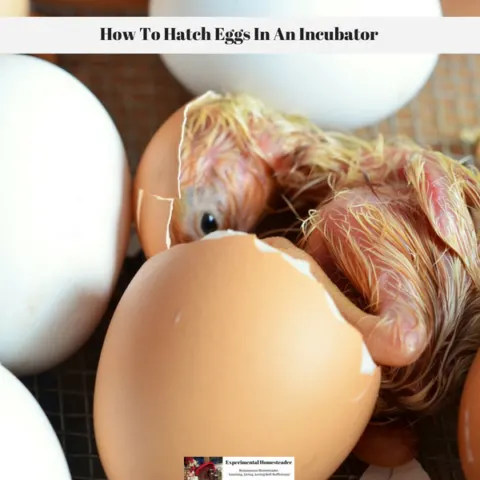
How To Hatch Eggs In An Incubator
Hatching eggs in an incubator is a fun and educational experience. Learn step by step how to hatch eggs in an incubator in this article.

My Experience With A Chicken Coop From A Box
A pre-made chicken coop from a box is an easy way to setup a first time chicken coop, but it needs to be made secure to keep your chickens safe.
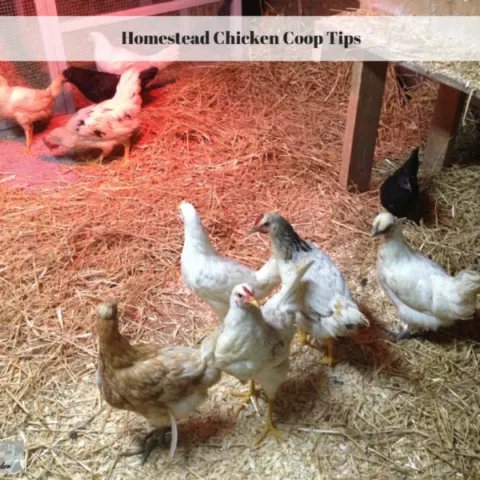
Homestead Chicken Coop Tips
Check out these basic chicken coop ideas to help you get your homestead chicken coop set up right the first time and keep your chickens safe.
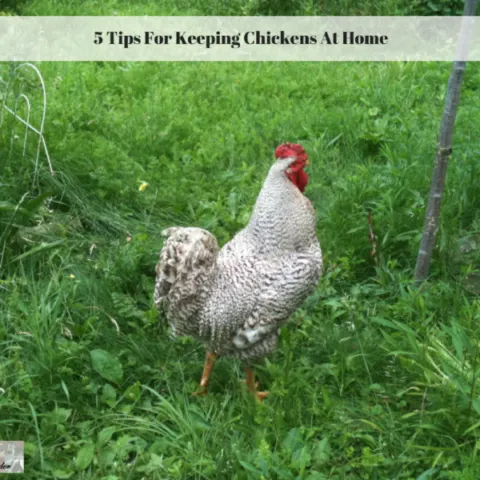
5 Tips For Keeping Chickens At Home
Keeping chickens at home is very popular. It is a good idea to learn how to start raising chickens before you own baby chicks or full grown chickens.
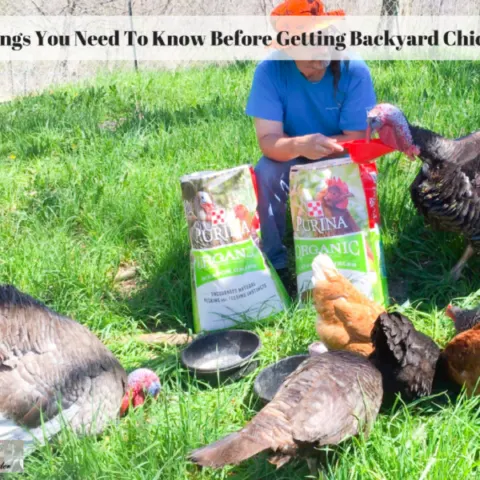
6 Things You Need To Know Before Raising Backyard Chickens
Raising backyard chickens is enjoyable. Learn what you need to know about caring for chickens before you begin raising chickens in your backyard.
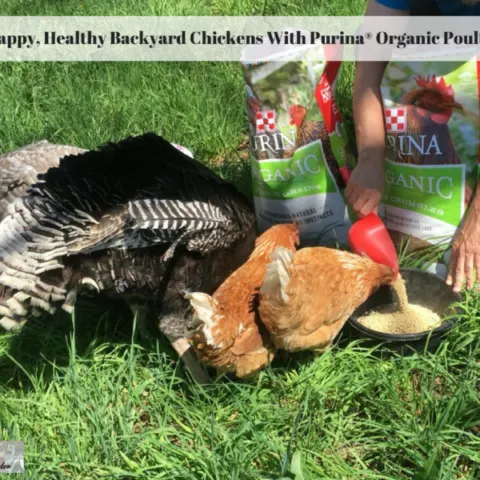
Raise Happy, Healthy Backyard Chickens With Purina® Organic Poultry Feed
Raising chickens in your backyard is fun plus you get fresh eggs. When it comes to feeding backyard chickens I believe organic feed is best.

Getting Started With Chickens
In this episode we'll explore advantages of raising chickens, problems that arise from raising chickens and how to keep your chickens healthy.
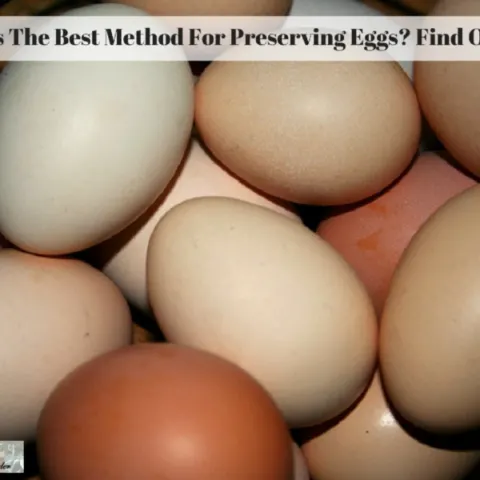
What Is The Best Method For Preserving Eggs? Find Out Now
Hatching eggs in an incubator is a fun and educational experience. Learn step by step how to hatch eggs in an incubator in this article.
Backyard Chicken Keeping Printable – Chicken Record Keeping Digital Download – Backyard Chickens Record Book
Introducing the Backyard Chicken Keeping Printable: Your Ultimate Companion for Effortless Chicken Raising!
Are you considering the exciting adventure of raising backyard chickens? Or perhaps you’re already a seasoned chicken keeper looking to enhance your flock management? Look no further! Our Backyard Chicken Keeping Printable is the essential tool you’ve been waiting for.





